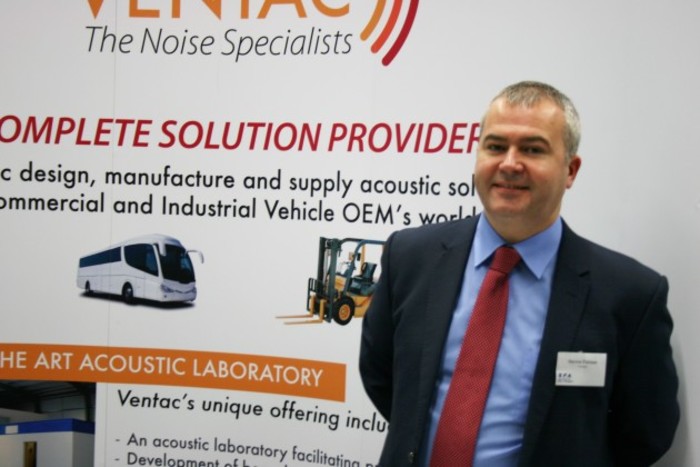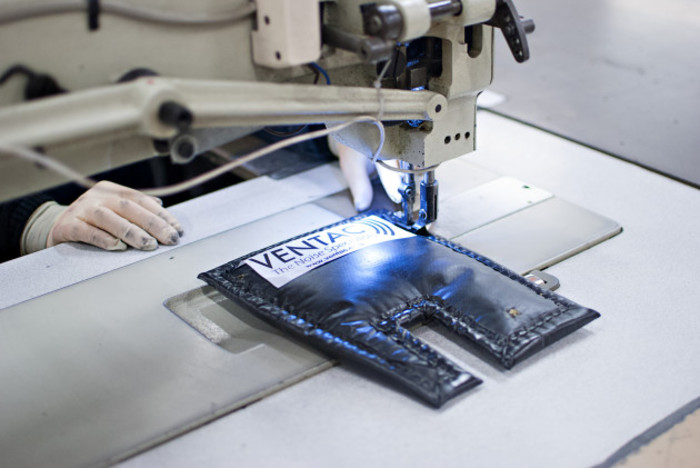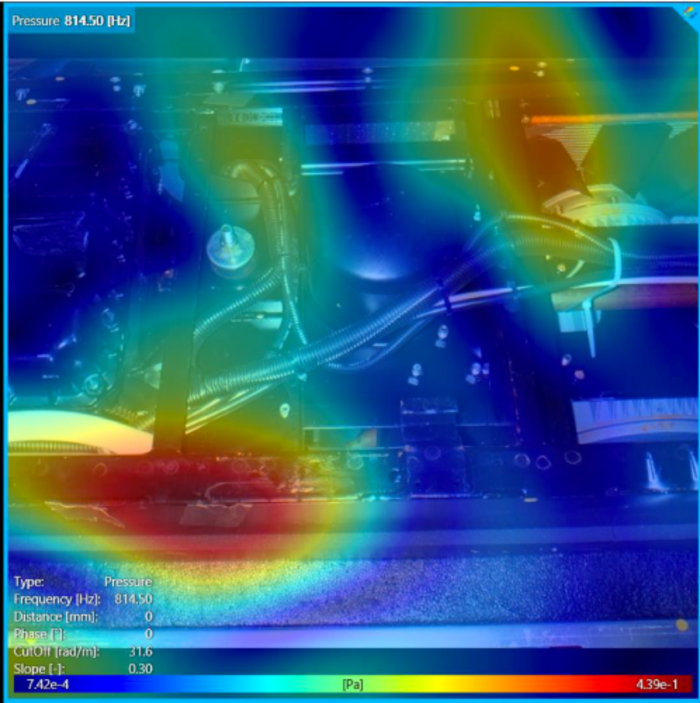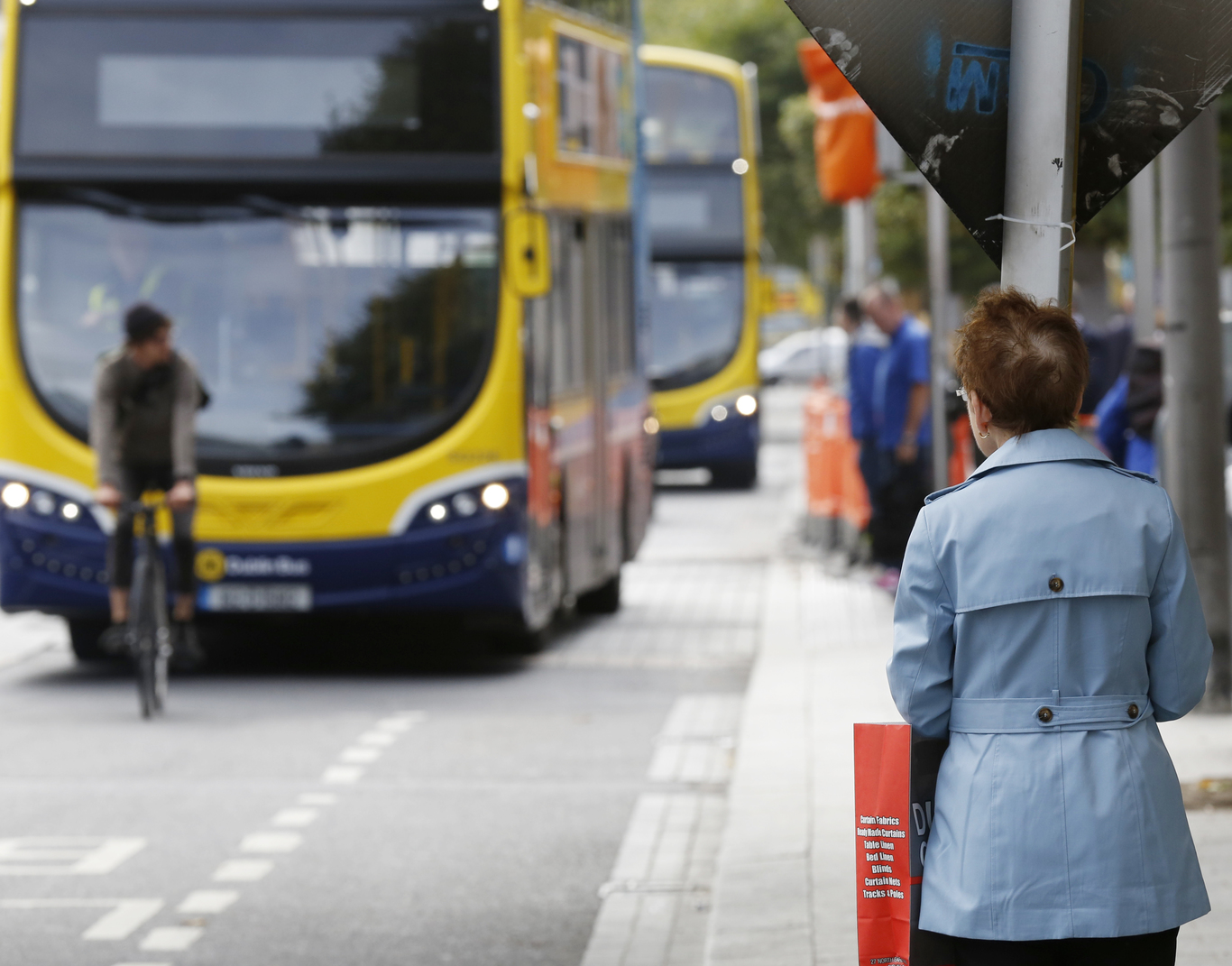A company that makes buses quieter is hitching a ride off strict noise-pollution rules
Blessington firm Ventac sees growing opportunities for its technology in North America.
NEXT TIME YOU’RE sitting on a bus, take off your headphones and have a listen.
If you don’t notice any mechanical noises, that’s probably because Darren Fortune and his 44-person team have been on board, padding out the vehicle’s noisy bits.
For the last 15 years, Blessington-based firm Ventac, where Fortune is managing director, has been designing and making noise control padding for buses, construction vehicles and manufacturing plants.
This week, the company was shortlisted for the manufacturing prize in the Small Firm Association’s 2017 small business awards.
Clients include the VDL bus company in Holland, which has a fleet of 32 Dublin buses on order.
Initially Ventac supplied ventilation systems to factories – hence the name – and was trying to make them quieter.
 Ventac's MD Darren Fortune
Ventac's MD Darren Fortune
While tinkering with the technology, it spotted a gap in the market for vehicle noise control when EU noise regulations were introduced in 2002.
According to the European Commission, 50 million Europeans in urban areas are exposed to “excessively high levels of traffic noise” and just under half of them experience health problems like high blood pressure as a result.
To counter this, member states are required to compile noise maps.
However, these rules will be amended in 2017 to put pressure on member states to come up with stronger noise management plans – and Fortune expects to make a mint from it.
“It will make a massive difference,” he told Fora when asked about the new rules.
“I know (fork-lift maker) Hyster-Yale in Nijmegen in Holland (a Ventac customer), they produce big, 40-tonne fork trucks at the moment. They’ll have to reduce the noise levels by probably 10-15%. They’re just on the border of the noise level at the moment.”
Acoustic lab
It might sound niche, but the noise reduction market in Europe is competitive, with a number of firms competing in the manufacturing and acoustic consultancy spaces. Fortune, however, claimed that Ventac is the only company that does both.
“Some people will go in and say, ‘Yeah, your bus is really noisy.’ We go in and say, ‘Yeah, your bus is really noisy. This is why and this is the part you need to kill the noise.’”
 Ventac production line
Ventac production line
Ventac’s secret weapon is its acoustic lab, where acousticians, or sound experts, play with different materials like foam and polyester to see how they absorb energy and noise.
They can quickly turn around a prototype for a material that will ‘kill the noise’ but won’t weigh down the vehicle and drive up fuel consumption.
The firm has invested in gizmos like an ‘acoustic camera’, which uses 1,000 microphones to “visually show the customer where the noise is travelling”.
“We can measure how materials with different thicknesses perform acoustically. We can measure how much energy that material will absorb. Then we can build partitions and walls and create noise from one chamber to another chamber.
“We can measure how much noise certain parts will stop in a real situation. It’s an innovation centre more than anything else.”
 Ventac's acoustic camera
Ventac's acoustic camera
Contracts
That level of research has helped Ventac win contracts with multimillion-euro firms like bus builders Alexander Dennis in the UK and Temsa in Turkey. Both supply coaches to North America, where Fortune sees a growing opportunity.
From next year, Ventac will be holding stock in a Virginia warehouse so customers can more easily access it when they are assembling buses: “It should enable us to get more business in the USA.”
Fortune claimed that because the firm is in the business of manufacturing as well as testing for noise weaknesses, it can turn around a prototype in just two days.
“We’re going next Monday to a meeting in Holland and we’ll be finished Tuesday evening,” he said. “If that project is successful, it will be four weeks before we’d have parts made.”
In Ireland, Fortune sees the business more into the industrial building sector, where Ventac treats pharmaceutical plants, food manufacturing floors and data centres.
“We’ve seen that business come back over the last 18 months or so,” he explained, “so we’re putting our focus there in terms of establishing real partnerships in Ireland.”






